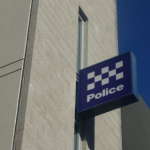What is a Critical Incident Investigation in New South Wales?

A critical incident investigation has been launched after police officers shot a 45-year old Indigenous man, Stanley Russell dead at his aunt’s home in Sydney’s north west.
According to police, four officers attended the home in Seven Hills at around 11.20am to execute an arrest warrant, when a “physical confrontation” occurred.
Police claim the man approached them inside the home with a knife and an axe, before officers discharged “a number of shots”.
The man collapsed and could not be revived.
When is a critical incident investigation initiated?
A critical incident investigation is initiated by the New South Wales Police Force whenever a police operation results in the death of, or serious injury, to a person in our state.
The role of the LECC
The Law Enforcement Conduct Commission (LECC) is meant to monitor these investigations from start to finish, which is meant to ensure the public that these investigations -whereby police are essentially investigating police – are conducted thoroughly, competently, and objectively.
However, the LECC has extremely limited resources and no power to discipline let alone prosecute offending officers.
For these reasons, the body has been labelled a ‘toothless tiger’ and, after recent funding cuts, is only able to investigate less the two percent of complaints against police and undertake only cursory monitoring of police investigations.
What is the purpose of a critical incident investigation?
The purpose and responsibilities of a critical incident investigation are outlined in the Law Enforcement Conduct Commission Act 2016 (NSW).
The Act gives the power to the Regional Police Commander to set out the specific objectives of each critical incident investigation.
Section 113 of the Act requires the Commissioner of Police to ensure that the actions of officers in the lead up to and during a critical incident are fully and properly investigated, and that reports are provided to relevant authorities thereafter.
The Commissioner is to consider, in light of the reports, any need for changes to relevant policies, practices and procedures; and any systemic, safety or procedural issues arising from the incident and actions of police officers.
What does a critical incident investigation examine?
A critical incident investigation examines:
- the lawfulness and reasonableness of their actions
- the extent to which they complied with relevant legislation and policies, practices and procedures
- any complaint about their conduct that has been referred to the senior critical incident
investigator; and,
- any evidence of officer misconduct.
Police shootings on the rise
Police officers are armed with capsicum spray and tasers, and are meant to use their firearms as a last resort.
However, data from a recent report produced by Australian Institute of Criminology (AIC) shows that police shootings in Australia are not only on the rise, they’ve reached an all-time high.
The report shows that there has been a significant – almost 80% increase — in fatal police shootings between 2018-19 and 2019-20.
New South Wales police officers have been armed since the early 1970s. In NSW police can ‘shoot to kill’ if there is a terrorism threat. In New South Wales, police officers are also permitted to use ‘lethal force’ against another person when there’s a reasonable threat of death or serious injury to the officer, another officer or a member of the public.
But, as has been pointed out time and again, it is exceptionally difficult to determine the ’reasonableness of a threat’. In high pressure situations, in the heat of the moment, there is no question that police officers need to make snap decisions, which cannot always clearly be determined as ‘right or wrong’ courses of action.
Military-style policing in New South Wales
There has been growing concern in recent times about the increasing ‘weaponization’ of the NSW police force, which is now equipped with military-style rifles, a long-range acoustic device which is used for crowd control and crowd dispersing but which can produce sounds loud enough to damage hearing, and riot gear which affords them a great deal of protection against an unarmed public.
There’s also a great deal of concern about the notable shift away from community-oriented policing to a more force-oriented model. Never has this been more evident than during the COVID-19 pandemic, particularly in the way police have responded to protestors.








